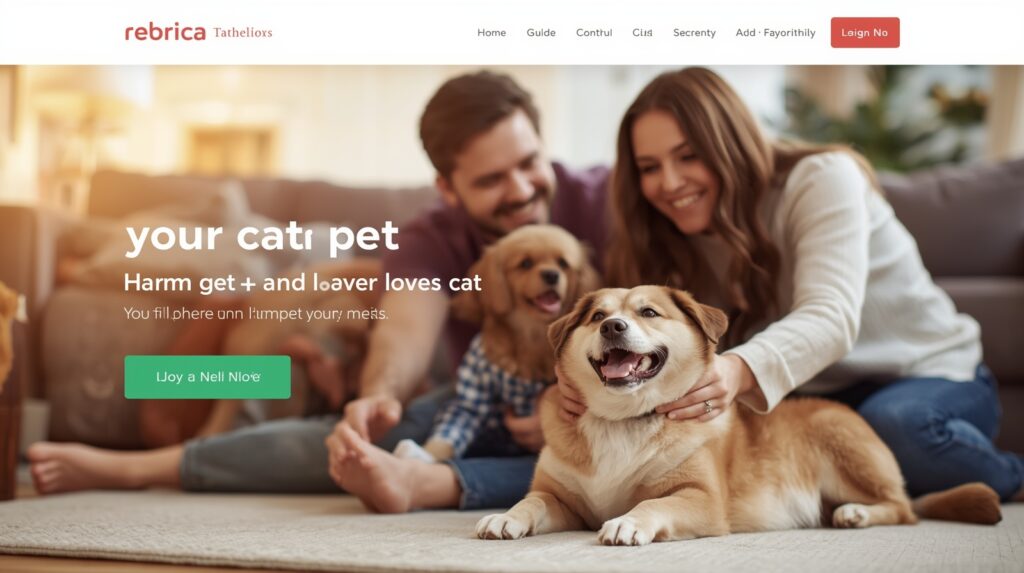Why do we keep pets 2? For many people, the answer is simple: companionship, comfort, and joy. Pets are much more than just animals we care for—they are part of our families. From the wagging tail of a dog to the soft purr of a cat, pets bring happiness, emotional support, and even health benefits to their owners. In this article, we will explore the reasons why we keep pets 2, the benefits of having them, and how they enrich our lives.

The Emotional and Psychological Benefits of Having Pets
One of the main reasons people keep pets is for emotional and psychological support. Pets are known to form strong bonds with their owners, offering companionship that alleviates loneliness. Whether you’re a child, an adult, or a senior, having a pet can significantly impact your emotional well-being. Here’s why:
1. Companionship and Loneliness Reduction
Why do we keep pets 2? Humans are social beings, and we thrive on connections. Pets, especially dogs and cats, offer constant companionship. They provide affection and a sense of connection, which is essential for emotional health. For those living alone or who are isolated due to various reasons, pets can be a source of comfort and security.
Many pet owners report feeling less lonely and more emotionally stable due to the presence of their pets. Pets don’t just stay by our side; they also listen, act as confidants, and help us navigate through tough times.
2. Stress and Anxiety Relief
Pets have been shown to reduce stress and anxiety. Studies have found that petting a dog or cat can trigger the release of oxytocin, a hormone responsible for emotional bonding and happiness. This reduces levels of cortisol, the stress hormone.
For people with anxiety or high levels of stress, spending time with a pet can be incredibly soothing. The simple act of playing with or petting a pet can calm nerves and promote a sense of well-being.
3. Improved Mental Health
For those struggling with mental health issues like depression, pets can have a profound positive effect. Pets are not judgmental, and they provide unconditional love, which can be incredibly healing. The responsibility of caring for a pet also gives pet owners a sense of purpose, which is essential for people battling depression.
Moreover, pets encourage activity. Walking a dog, playing with a cat, or simply interacting with an animal encourages physical movement, which is beneficial for mental health.

Physical Health Benefits of Keeping Pets
In addition to the emotional and psychological benefits, pets also contribute to physical health. Here are some ways pets improve overall well-being:
1. Increased Physical Activity
One of the most significant physical benefits of having a pet is the increased level of physical activity. Dog owners, in particular, are often more active because dogs require regular walks, runs, and playtime. This regular exercise can help pet owners stay fit and maintain a healthy lifestyle.
Even playing with a pet indoors or in the yard can promote physical activity. For individuals who struggle with motivation to exercise, having a pet can provide that extra push.
2. Lower Blood Pressure and Heart Disease Risk
Why do we keep pets 2: Studies have shown that pet owners tend to have lower blood pressure and a reduced risk of heart disease. The companionship and regular exercise pets provide can help lower blood pressure levels and promote heart health.
The calm and relaxed environment pets create also reduces stress levels, which is known to be a significant risk factor for heart-related issues.
3. Pain Relief and Recovery Aid
Pets, particularly service animals, can play a vital role in recovery from illness or injury. For example, service dogs help individuals with mobility issues or physical disabilities. Additionally, the presence of pets has been shown to aid recovery from medical procedures by reducing stress and encouraging a calm, healing environment.

Pets Teach Us Valuable Life Lessons
Owning a pet also provides valuable lessons, particularly for children. Pets teach us responsibility, empathy, and compassion.
1. Responsibility
Taking care of a pet requires dedication and responsibility. Feeding, grooming, exercising, and ensuring the pet’s health are part of daily life. For children, having a pet teaches them how to care for another living being, fostering a sense of responsibility. It also helps children understand the importance of routine and how to manage time effectively.
2. Empathy and Compassion
Pets require attention and care, and owning one helps develop empathy. By understanding their needs, owners learn to recognize and respond to emotions. Children especially benefit from learning to care for a pet’s well-being, as it teaches them how to be compassionate and considerate.
3. Teaching Life Cycles
Pets also help children understand the cycle of life, including birth, aging, and death. While this may be a difficult subject, it is an essential part of growing up. Children who own pets learn early on the importance of nurturing and the delicate balance of life.
Why We Keep Pets: The Role of Pets in Families
Pets often become integral members of families. They aren’t just animals; they are companions, protectors, and even emotional caregivers. Families keep pets for various reasons, and the relationship can be transformative:
1. Strengthening Family Bonds
Pets can strengthen family bonds by bringing family members together. They become a shared responsibility and an activity point for the whole family. Why do we keep pets 2? Whether it’s taking the dog for a walk, playing with a cat, or caring for a pet bird, the whole family can be involved in pet care.
Pets also provide opportunities for family members to connect in positive ways. They give everyone something to focus on and care for, promoting teamwork and unity.
2. Security and Protection
For many families, pets provide an additional layer of security. Dogs, in particular, are known for their protective nature and can act as excellent watchdogs. Even smaller pets like cats and birds often alert owners to strange sounds or visitors, making them valuable for household security.
3. Encouraging Socialization
Having a pet can improve a family’s social life. Pet owners tend to socialize with other pet owners, whether at parks, pet-friendly events, or local pet stores. These interactions provide opportunities for families to meet others and form social connections, which can be especially important for children.
What Are the Common Pets We Keep?
The types of pets people choose vary widely depending on their lifestyle, living situation, and personal preferences. The most common pets people keep include:
- Dogs: Known for their loyalty, playfulness, and companionship, dogs are one of the most popular pets in the world.
- Cats: Cats are independent and affectionate, making them great companions for people who prefer a more low-maintenance pet.
- Fish: Fish are calming to watch and require minimal interaction, making them ideal for those with busy lifestyles.
- Birds: Parrots, canaries, and budgies are popular pets due to their intelligence, ability to mimic sounds, and relatively low maintenance.
- Small Mammals: Hamsters, guinea pigs, rabbits, and ferrets are excellent choices for smaller living spaces.
How to Choose the Right Pet for Your Family
Choosing the right pet for your family depends on several factors, such as the amount of time you have for care, your living environment, and your lifestyle. Here are some tips:
- Consider Your Living Space: Larger pets, like dogs, may not be suitable for small apartments, while smaller pets, like fish or hamsters, are perfect for tight spaces.
- Evaluate Your Schedule: Some pets, like dogs, need more time and attention. Make sure you can meet the demands of your pet’s care before bringing one into your home.
- Think About Long-Term Commitment: Pets require long-term care, and some pets, such as dogs and parrots, can live for many years. Make sure you’re ready for this long-term responsibility.
Conclusion:
Why do we keep pets 2? The reasons we keep pets are varied, but the impact they have on our lives is undeniable. From providing emotional support to teaching valuable lessons about responsibility and compassion, pets are integral to our happiness and well-being. Whether you’re seeking companionship, security, or a way to bring your family together, having a pet can be a transformative experience that enriches your life in countless ways.





